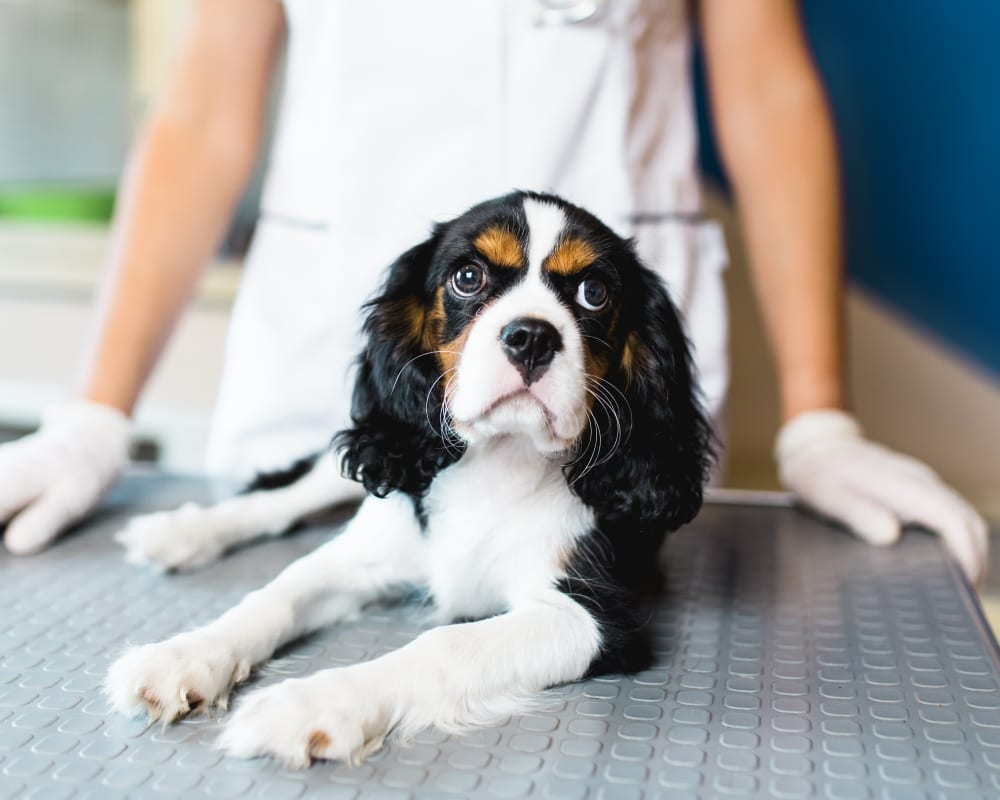Spaying & Neutering
Our veterinary professionals perform spay and neuter surgeries on a regular basis. These procedures help reduce the homeless pet population while improving the health cats and dogs.
Keeping Cats & Dogs Healthy
Neutering is a procedure in which the testicles are removed from male pets. Spaying removes a female pet's reproductive organs. These surgeries stop your male cat or dog from fathering offspring or your female cat or dog from becoming pregnant.
Having your dog or cat spayed or neutered not only prevents unwanted pregnancies, but it also protects their overall health, and can make them more manageable. Pets who are spayed or neutered are less likely to suffer from certain cancers, and may be less likely to display bad behaviours like mounting and excessive grooming of their genital area.
Our Orléans veterinary team highly recommends that each one of our patients be spayed or neutered if there are no plans for breeding. These surgeries help contribute to overall good health and well-being of dogs and cats, while helping reduce the population of homeless pets in animal shelters.

When to Spay or Neuter Your Dog or Cat
At Gloucester Veterinary Hospital, we provide general spay and neuter age guidelines below, but no one understands your pet's health quite like your veterinarian.
Dogs: We recommend that puppies get spayed or neutered at approximately six months of age. Some veterinarians have concluded that for certain breeds, it is better to wait until the dog reaches sexual maturity before performing these reproductive surgeries. Consult with to your veterinarian to determine the best time to have your canine pal spayed or neutered.
Cats: We suggest spaying or neutering cats at six months of age. This gives them time to reach their relative adult size and ensure they can safely metabolize anesthetic agents. While we do recommend getting your feline friend spayed or neutered sooner than later, a healthy adult cat can be spayed or neutered at any age.
FAQs About Spaying & Neutering
Are you considering getting your pet spayed or neutered, but still have questions? To learn more about spaying and neutering, browse through the answers to our most frequently asked questions below.
-
How long will it take for my pet to recover from surgery?
Spay and neuter procedures are typically day surgeries, meaning pets can return home in the evening once their procedure is complete.
Your pet's activity will need to be restricted for around 10 days, and a protective cone will most likely need to be worn by your pet to prevent them from licking the incision.
Additionally, your veterinarian might request that you bring your cat or dog in for a follow up appointment to examine how the incision has healed.
-
Will my pet feel anything during the procedure?
During the procedure, your pet will be under general anesthesia, so they will not feel anything.
-
Will my pet gain weight after the procedure?
Your puppy or kitten will continue to grow to their full adult weight after their spay or neuter procedure, and this naturally includes some additional weight.
However, your pet will not gain weight because of the spaying or neutering.
-
How much will it cost to get my pet fixed?
The cost of your pet's spay or neuter surgery depends on a wide variety of factors, including the size and overall health of your pet. For an accurate estimate of the cost of your pet's reproductive surgery, contact our Orléans veterinary clinic.
-
Will my pet need to stay in the hospital overnight?
While in some rare cases it may be necessary to keep a pet overnight following spay and neuter surgeries, these procedures are typically single day surgeries. Therefore, you will drop your pet off in the morning at a pre-arranged time, then pick them up once our veterinarians have decided that your pet has recovered enough to return home.
Upon picking up your pet following the surgery, our veterinary team will be sure to provide you with detailed instructions for at-home care.
